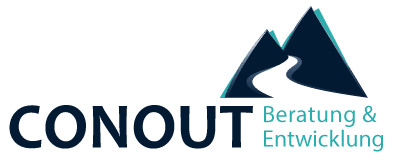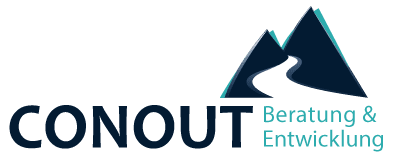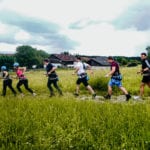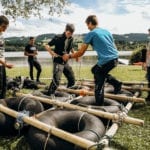Consulting & Development » Leadership Development


YOUR CONTACT PERSON
Ulrich Puntigam
[email protected]
GOALS AND BENEFITS OF LEADERSHIP DEVELOPMENT
Leaders must master leadership and management. Excellent self-management, an understanding of team dynamics and the ability to convey goals as inspiration make successful managers successful.
With individual trainings, workshops and one-to-one coaching we make you fit for these challenges.
FIELDS OF LEADERSHIP DEVELOPMENT
In the following you will find a selection of our range of services, which we will be happy to adapt to your individual needs.
TRAINING FOR MANAGERS
TRAINING AND COACHING
We give your managers the space and the possibilities to build up and expand their leadership competence. According to the motto: “The higher the position, the lonelier the function holder”, we design the individual framework for each hierarchical level.
From feedback training for foremen to collegial advice for group leaders to expert circles with board members and managing directors. However, one thing remains the same with every training course:
Experiencing leadership and looking at one’s own actions in the mirror.
From executives for executives.


EXECUTIVE DEVELOPMENT PROGRAMS
In addition to selective training, we also offer our customers entire leadership programs. We do not supply bar stock, but forge the ideal training plan with you for your existing or future managers.
Classic contents for leadership programs are:
– Leadership and self-awareness
– Coaching and personnel management
– Communication and Presentation
– Change and Change Management
– Dealing with resistance and conflicts
– Learning integration and appreciation
We will clarify with you personally how many modules make sense and how the transfer into everyday life is ensured.


PROMOTE A CULTURE OF TRUST AND PERSONAL RESPONSIBILITY AMONG EMPLOYEES
Nobody is born an agile manager, but you can be trained or coached. Those who want to establish agile management as a leadership principle should not underestimate the topic of corporate culture.
An agile management needs a culture of trust that “promotes the agility of companies in the opinion of the participants (…) Such a culture of trust encourages employees to actively and quickly develop individual solutions at the direct point of contact with the customer, instead of waiting for central specifications or being paralysed by too many and too rigid bureaucratic planning, control and reporting activities,” according to a current Kienbaum study.
In our workshops, we show how the establishment of a culture of trust through a “healthy” perception of oneself and others forms the basis for agile thinking and responsible action. First the appropriate culture is needed, then the technical aspects of agile methods can take effect.


DEVELOPING A MANAGEMENT MODEL
Your employees are confronted daily with several leadership characters and leadership styles at the same time. It is particularly challenging when the different managers have a diverging understanding of leadership and use different management instruments.
In order for employees to be able to act in a motivated manner within a clear framework, a common management model must be developed and lived. A better networking of managers and the reflection of one’s own leadership behaviour are welcome side effects in this process.


DEFINE MANAGEMENT ROLES
A role results from personal characteristics and the requirements or expectations of the environment. Together, we work out how these factors can best be combined in the individual leadership role. To this end, we clarify personal strengths, enable the use of open potentials and look for ways to solve upcoming challenges.
These measures are particularly suitable if organisational changes directly affect management work or if individual changes (e.g. promotion) necessitate new action in an optimally modified role.
FROM EMPLOYEE TO MANAGER
Suddenly leader and what now? We don’t leave your employees alone when they climb the career ladder. We will work with you to develop a professional leadership attitude towards your colleagues and friends from just now.
Elements such as delegating, saying “no”, dealing with conflicts, making decisions and sanctioning are practiced and adapted to the individual situation. In addition to settings such as workshops or training, there is also accompanying coaching.


FROM TECHNICIAN TO MANAGER
In many companies the “technicians” are the guarantors for the company’s success. If they are given the right management tools, the result is a promising combination. It is important to recognize the difference:
Solution strategies for technical problems differ fundamentally from those for social systems. Machines can be very complicated, but always react the same way to the same input. Employees, on the other hand, are a real black box: one and the same input can lead to completely different reactions.
We teach your technicians how to use leadership tools profitably and what inner attitude is necessary.


STRENGTHEN LEADERSHIP SKILLS
EFFECTIVE LEADERSHIP
Communication is a central management element. Executives reflect on their own communication behaviour and view it from the sender and receiver positions. We provide specialist input on delegation, feedback and target clarity.
This enables managers to send their messages more effectively and achieve the desired effect. In addition, the managers get to know various coaching instruments in order to turn their employees from problem makers into problem solvers.


DEALING WITH DIFFICULT EMPLOYEES
In this module, we make managers fit to deal with employees who regularly take them out of their comfort zones. First and foremost, we examine the classification of a “difficult employee”: What characteristics make me as a manager choose this category and why do I find myself in a challenging situation?
By dealing with objective criteria (performance) as well as subjective perceptions (behavior), the view of individual, clearly identifiable characteristics becomes free. Through this new way of looking at things, a new basis for cooperation becomes possible through clear agreements on action. The manager opens up new possibilities for action and the supposedly difficult employee robs less energy.


STEER TEAM DYNAMICS
In this special module we deal with the recognition and targeted control of group dynamic processes and open the background of team dynamics and their typical causes.
In the future, managers will be prepared for “group dynamic disturbances” and will be able to work on them in a compatible way in order to quickly re-establish a joint ability to work. In addition, it is also important for the managers themselves to examine their own actions and role in the group dynamic context and to develop a healthy patience in order to give dynamics in the team appropriate time and space.


LEAD PROJECT TEAMS
Project teams are temporary units that manage without clear hierarchies.
– How does a team leader get his team to the goal without authority?
– How do you unite a colorful bunch of employees from different departments with different interests?
– How do you turn freshly assembled teams into a productive unit?
With us you can find out which regulatory and structures in teams are necessary for this. You will learn how teams communicate efficiently with each other and with their system environments.
In addition, we look at the interpersonal aspects and convey possibilities for aligning the needs and goals of individual team members to a common team goal.


REMOTE LEADERSHIP – LEADING FROM DISTANCE
Whether locally dispersed project teams or home office staff: Leading from a distance is one of the absolutely necessary skills of modern managers.
These questions concern remote leaders:
– How can I keep remote teams together?
– How can I ensure that my employees are motivated and perform well?
– How can goals, delegation and error culture be lived correctly?
– How do I enable self management and accountability?
The answers of excellent remote leaders are widely known: Sense of purpose, trust and self-organization. Our Leadership Training will show you exactly how to put these into action and anchor them in your team. You can adapt proven approaches and create the optimal setting for your remote team.


OUR PHILOSOPHY
Under the motto “Feel & experience leadership”, we work in a strongly experience-oriented way in executive development.
The participants master actual leadership challenges with the goal of leading people to success.


Through the targeted use of experience-oriented exercises, we make the soft factors of leadership competence visible. Through transparency and recognizability, we promote both insight and motivation to develop all leadership skills


Executives learn about the latest findings of neuroscientific educational research and their effects on everyday management life. You will gain an insight into the feasibility of formulated expectations and can avoid overstraining yourself and your employees. We present objective scientific data and well-founded recommendations. This enables us to question traditional philosophies and one-sided experiences. Particularly old managers experience real miracles.
OUR LATEST CONTRIBUTIONS TO THE TOPIC
-
 6. August 2021The pandemic required us to rethink the way we set up our well-established leadership trainings. We had to move away from in-person gatherings and had to enter a new space – the virtual space! How we used and still continue to use this new space abundant with opportunities and limitations for our trainings - including fundamentals like collaboration and networking exercises - you can read in the following interview.
6. August 2021The pandemic required us to rethink the way we set up our well-established leadership trainings. We had to move away from in-person gatherings and had to enter a new space – the virtual space! How we used and still continue to use this new space abundant with opportunities and limitations for our trainings - including fundamentals like collaboration and networking exercises - you can read in the following interview.
PLEASE CONTACT US AND ASK FOR INFORMATION WITHOUT OBLIGATION.
WE WILL GLADLY MAKE YOU A TAILOR-MADE OFFER!













